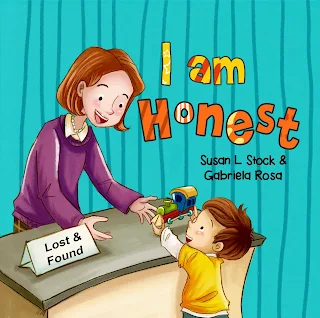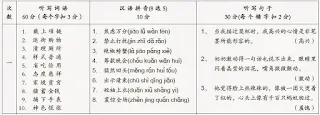So I make it very clear from the start that only hardworking pupils will make it, he was not comfortable but he said firmly, "I will get an A!"
So we went through the process of goal setting, target setting and every week we will review what need to be done and celebrate what had been done. He was not too hopeful back then but he carried out all his work diligently week after week.
He studied the word lists in primary 5 and 6 textbooks word by word, writing notes on their meaning, character and hanyu pinyin. He would repeat this process every month and continue to revise those words now and then. And every week we would go through those words and nouns and practice on reading those textbook passages repeatedly.
 After 3 months, His composition almost passed and his paper 2 showed improvement especially section A MCQ where he got a pass 26/50.
After 3 months, His composition almost passed and his paper 2 showed improvement especially section A MCQ where he got a pass 26/50.(If you can write a composition with less grammar mistake, less sentence construction mistake and less misspelling then you have half won the battle.)
Then our focus turned to composition where he would write a composition every week, memorize a list of phrases and nouns and to try to memorize a good composition week after week.
The first composition is super hard, he was no used to memorizing so much content so we cut the composition into pieces of sentences. we started from the first sentence, then the second then the third and the last in the first paragraph. this process continued for several weeks until he got used to the process and the process got faster and faster. then we started to write the composition from memory.
Every week we learnt a new composition, read them out aloud and then memorized them. Then he was to write the composition using his own word words. Why not copy? well I have tried that and children tend to blindly copied everything and learnt nothing from it.
SA1 results shown that he not only passed paper 1 (24/40) and he passed paper 2 too. (I think its due to his expended vocabulary, his MCQ got 32/50.)
Then as July draws nearby, We again changed our focus to oral which is due mid September. There are 2 parts in oral, so we start to read out 5 oral passages weekly and hand in as audio clips via whatsapp or sms. He was delighted to hear his voice and I get to check on his process daily.
But He started to be nervous and felt pessimistic, falling for the weaker himself. I coach him on how to handle stress and fear. And he moved on.
Nearer oral, I practice with him the oral process and what the 3 questions would be. And I go through several topics which I think is very important for PSLE.
(Remember pre-oral I listed down the important contents(topics)
1) Keep our environments clean
2) Go Green, earth hour, recycling, reuse etc
3) Traffic safety
4) Healthy eating and living
5) Helping the needy, giving seats etc
6) Be independence like learn to cook, organizing school bags etc.
7) Values such as Responsibility, hardworking, Caring could be a topic too.
Well one of them is the oral topic!)
Lastly, Use this book to check your child's understanding of Chinese Language in the coming PSLE.
(I'm the author of this book if you are not aware. Thank you. )
In conclusion, children need to take action on advise and not to do nothing except dreaming.
please contact me via my email
mrtan.sg@gmail. com



































